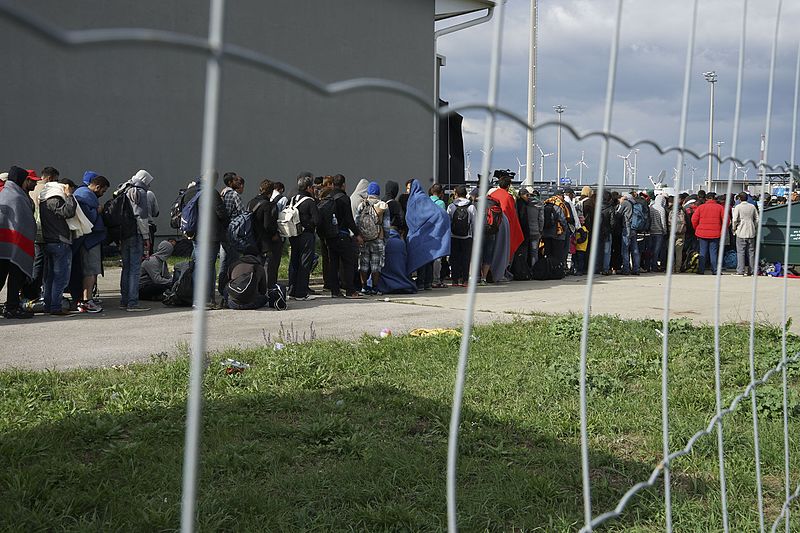
EU powers France, Germany and Italy, along with smaller member Malta, will on Tuesday seek to rally the rest of the European bloc to a joint scheme they have come up with
to distribute migrants saved at sea.
But it was unclear, ahead of the meeting of EU interior ministers in Luxembourg, how many other states would sign on to the so-called Malta declaration reached two weeks earlier.
Migration remains a hot-button issue in the EU in the wake of a massive 2015 influx of mostly Syrian refugees fleeing war.
While the numbers have fallen to just a fraction since -- under contentious EU deals done with Turkey and Libya to hinder migrants' onward travel -- no progress has been made in three years of efforts to reform the EU's refugee policy.
The Malta declaration is an attempt at a stop-gap measure pending efforts by the incoming European Commission taking charge next month to unblock the refugee policy impasse under a vice president specifically tasked with "Protecting the European Way of Life".
- Vague text -
The text urges EU countries to take a share of the asylum-seekers crossing the Mediterranean, who are arriving mostly in Italy and Malta either in overcrowded boats or rescued by ships run by NGOs.
However the document's language is deliberately vague to avoid raising hackles.
It makes no mention of intake quotas, for instance, or punishment for EU states that do not participate, or how economic migrants with no right to asylum might be weeded out and returned to their country of origin.
The mechanism has just a six-month period lifespan, renewable if there's sufficient support.
"The beauty of this text is that you can't be against it. But also you can maybe not be totally in favour of it. Because there are things lacking," one European diplomat said.
"There's hardly anything in there that describes the disembarkation, the disembarkation procedure and the relocation scheme afterwards."
- 'Empty the boats' -
Some EU states grumbled that the Malta declaration does little to address migration flows to Spain or Greece which are largely not subject to sea search-and-rescue.
Since the start of this year, 13 percent of irregular migrants have arrived in Europe through Italy or Malta, compared to 57 percent in Greece and 29 percent in Spain.
Several states acknowledge however that the scheme seeks to "empty the boats" and alleviate a situation in which rescued migrants might spend weeks at sea before a European port allows an NGO ship to finally dock and have them disembark.
The European Commission sees the declaration as "the outline of a future agreement," according to a spokeswoman.
NGOs such as Amnesty and Human Rights Watch called it a "positive step", while Oxfam said it was "the first moment of hope for a more humane system since European migration policies deteriorated in 2015".
- 'No idea' what support -
But not all EU states are on board.
While Luxembourg and Ireland are "highly probable" candidates to join the temporary scheme, Finland was in favour only if a critical mass of member states signed up, and the Netherlands was against, according to various EU diplomats.
Asked how many might support the scheme in Tuesday's meeting, one diplomat told AFP: "I have no idea. Your guess is as good as mine."
Any suggestion that EU countries opposed to taking in migrants, such as Hungary or Poland, might be penalised through reduced EU spending or enforced contributions to those countries that do host could sour the meeting quickly.
Another diplomat cautioned that "we're still in a relatively early stage -- this is a process which will certainly continue after Tuesday".afp, photo by Mstyslav Chernov/wikimedia.



































